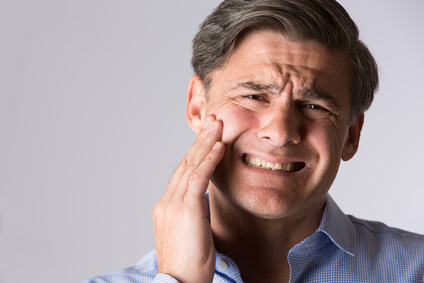 Do you wake up with neck pain, sore teeth, or bad headaches? If yes, chances are that you could be suffering from bruxism, a condition in which an individual unconsciously clenches their teeth while asleep. Dental experts have explained that this is common, especially in women.
Do you wake up with neck pain, sore teeth, or bad headaches? If yes, chances are that you could be suffering from bruxism, a condition in which an individual unconsciously clenches their teeth while asleep. Dental experts have explained that this is common, especially in women.
Consequences of a Hard Grind
When grinding teeth while asleep, you are unknowingly putting force on them. The resulting damage can range from minor to severe.
- As teeth grind and become flat, they begin looking unsightly.
- The back teeth can hit each other as those on the front shrink.
- Teeth can get shorter, looser, and chip easily.
- That jaw joint also suffers from bruxism. Ligaments near the temporomandibular joint (TMJ) can become damaged. The result is acute pain.
- You can get an earache from the tremendous pressure.
The inner ear and the TMJ are only a few millimeters apart. Thus, if the area has become sore and inflamed, your inner ear can pain too. Only in rare cases, bruxism can cause damage to the TMJ apparatus. This condition is the temporomandibular joint dysfunction (TMD).
Some Common Causes
The cause behind the grinding of teeth is not known. Some dentists have said that there may be several reasons behind teeth clenching. Some of these include misaligned teeth, excessive stress, or a habit that has formed over years.
Dentists specializing in treating children (pedodontists) have also said that most 5-year-olds grind their front baby teeth. So, it does not seem that stress is the leading cause.
How to Break the Bruxing Habit
A simple yet effective technique you must practice is keeping your lips together and your teeth apart. This posture will help you to keep your jaw relaxed. The next step is to consult a specialist. Ask about their expertise or training with bruxism. The treatment needs to be tailored per your symptoms.
Bruxism Treatments
A dentist typically recommends a dental night guard. It is a hard appliance that sits over your upper teeth. Its flat and smooth surface ensures that there is no “play area” to grind on. Less frequently, the dentists suggest a type of guard that permits the front teeth to come together while the back teeth remain separate. However, in severe cases, dual appliances are recommended for both the upper and lower teeth.
- A properly manufactured dental night guard reprograms nerve pathways and muscles.
- If you suffer acute signs and symptoms, a soft diet could be recommended for some time.
- The specialist may suggest applying heat or a cold pack to your jaw.
- Some dentists use electrical stimulus machines for facial muscles. This is a TENS device.
- In some extreme cases, patients have been administered the Botox injection into their “chewing” muscles, so that their ability to clench no longer exists.
- Medications like muscle relaxants, anti-inflammatories, pain relievers, or even sleeping pills are recommended.
- Some dentists prefer an evening out the bite by reshaping tooth enamel.
- Only in rare and extreme cases, some dentists may suggest some dental work like getting crowns and/or caps (veneers) to reestablish your smile.
Some tips to undergo lifestyle modification include the following:
- Maintain a nutritious diet
- Engage in regular exercises
- Avoid excessive alcohol consumption
- Don’t smoke
- Get restful sleep
These habits can help stay relaxed, which can help get rid of teeth clenching.
f you are looking for a dentist, HPS Advanced Dental Care would love to see you. Dr. Heather is gladly accepting new patients.
We are located at 4741 24 Mile Rd. Shelby Township, MI 48316, and we can be reached at (248) 652-0024. We look forward to meeting you!
